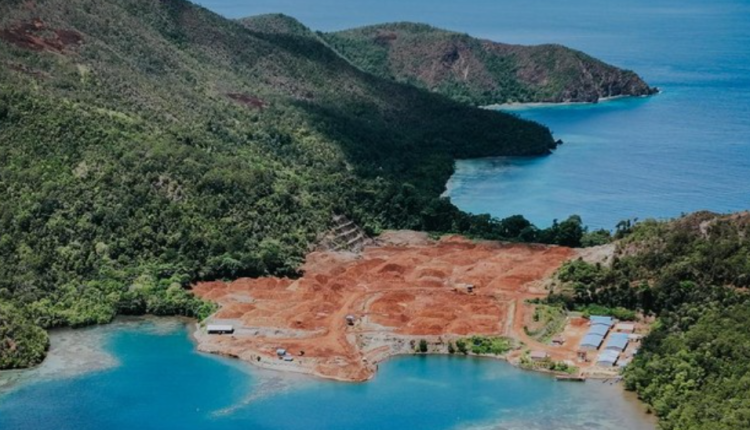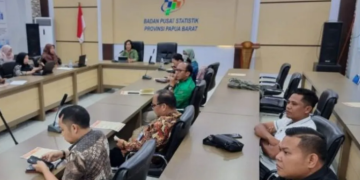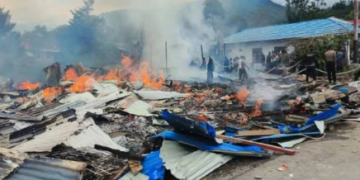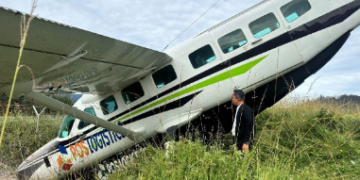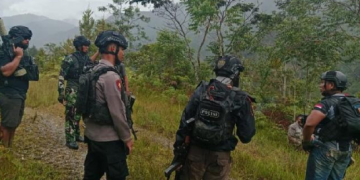Papuaaround.com – President Prabowo Subianto has decided to revoke four out of five nickel mining permits operating in Raja Ampat, West Papua. The move, according to State Secretary Prasetyo Hadi, followed careful deliberation and received the president’s direct approval.
“Yesterday, the President led a limited meeting to discuss the mining permits in Raja Ampat. With his approval, the government has decided to revoke the permits of four companies operating in the region,” Prasetyo announced during a press briefing on Tuesday.
Minister of Energy and Mineral Resources Bahlil Lahadalia identified the affected companies as PT Kawei Sejahtera Mining, PT Mulia Raymond Perkasa, PT Anugerah Surya Pratama, and PT Nurham. However, the permit for PT Gag Nikel remains intact.
According to Bahlil, PT Gag Nikel retained its license after comprehensive evaluations of its environmental and technical practices showed compliance with regulations. On-site inspections further confirmed that its operations have not significantly harmed the environment.
“PT Gag has been conducting mining activities that, based on our team’s evaluation, meet environmental standards. The photos I took during my visit show that everything aligns with the environmental impact analysis,” Bahlil explained.
He further noted that PT Gag Nikel has held a Contract of Work since 1998, under the administration of former President Soeharto. The company initiated its first exploration phase between 1999 and 2002, extended exploration between 2006 and 2008, entered the construction stage from 2015 to 2017, and commenced production in 2018.
While the revocation of four permits has been seen as a positive step toward environmental protection, some environmental groups remain cautious. Kiki Taufik, Global Greenpeace’s Head of Indonesia Forest Campaign, described the decision as a small but significant move to safeguard Raja Ampat from the potential threats posed by nickel mining.
However, Kiki emphasized that the decision lacks legal binding force until it is formalized through a Presidential Decree or similar regulation. “We are waiting for an official government decree that can be publicly accessed,” he stated.
Greenpeace Indonesia has also called for a broader approach, urging the government to revoke all mining permits across Indonesia’s islands to prevent further environmental degradation. Kiki warned that unless comprehensive action is taken, there is no guarantee that environmental damage will not recur, even in Raja Ampat.
“Nickel mining permits on small islands elsewhere in eastern Indonesia have caused ecological destruction and severely impacted indigenous communities. We urge the government to review all existing mining licenses,” he added.
Legal experts have also weighed in on the government’s decision. Bisman Bhaktiar, Executive Director of the Center for Energy and Mining Law Studies (Pushep), supported the move but raised concerns about fairness. He argued that allowing one company to continue operations might foster resentment among stakeholders.
“While this decision is appropriate, it may seem unfair since one company still holds a permit. From an environmental perspective, this is already a positive step, but ideally, all mining activities should cease to fully protect Raja Ampat’s unique ecosystem,” Bisman said.
He asserted that revoking the remaining permit would not discourage investment, as the move pertains to a special conservation area. “This revocation affects legal certainty but has little impact on investment since Raja Ampat is a unique location designated for tourism and ecological preservation,” he clarified.
Bisman stressed that the government possesses the legal authority to annul mining permits in protected areas. He cited violations of the Coastal and Small Islands Management Law, Environmental Law, and rulings from the Constitutional Court as sufficient legal grounds.
Furthermore, he highlighted the need for improved spatial planning, strict permit issuance processes, and stronger oversight of mining operations to ensure environmental protection remains a central consideration in Indonesia’s resource management.

